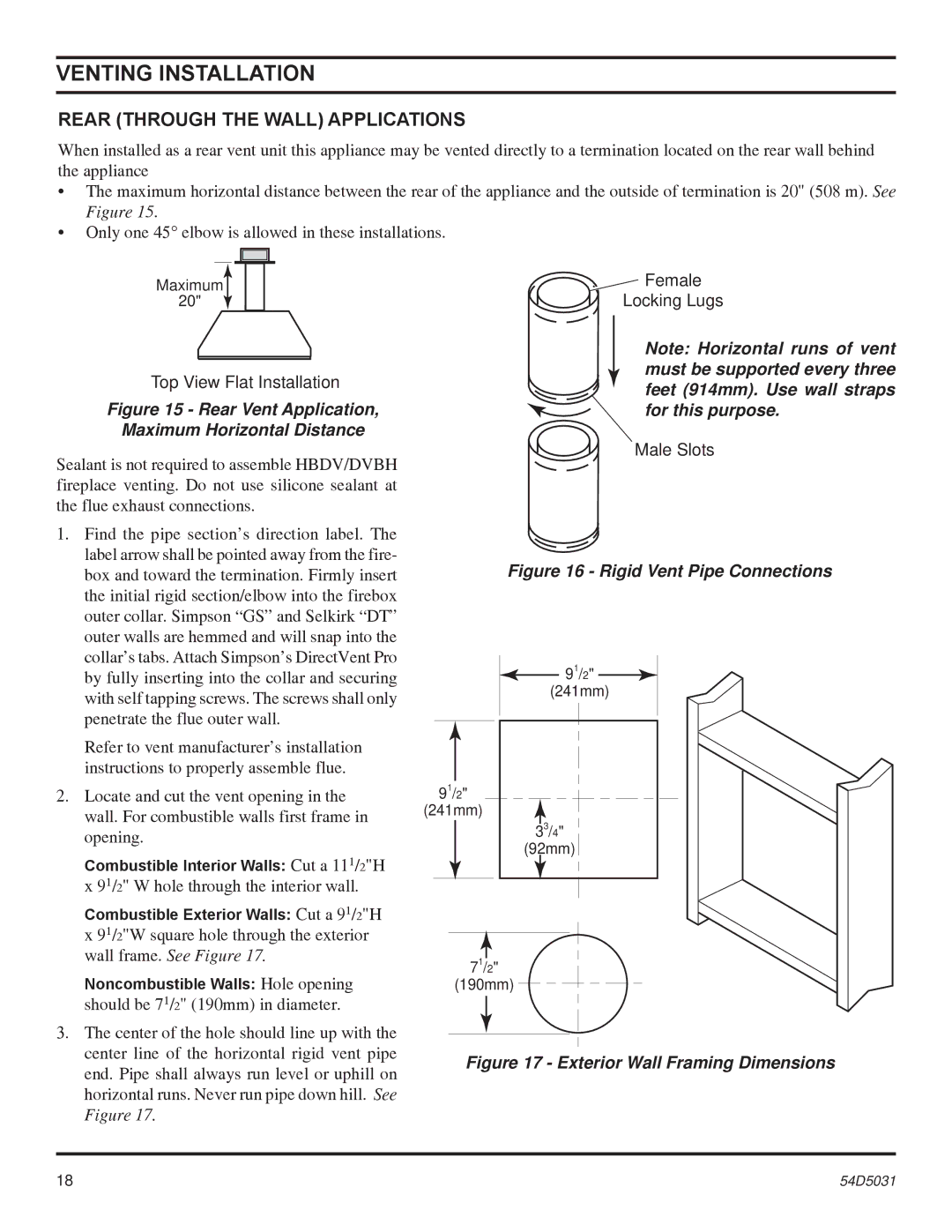
VENTING INSTALLATION
REAR (THROUGH THE WALL) APPLICATIONS
When installed as a rear vent unit this appliance may be vented directly to a termination located on the rear wall behind the appliance
•The maximum horizontal distance between the rear of the appliance and the outside of termination is 20" (508 m). See Figure 15.
•Only one 45° elbow is allowed in these installations.
Maximum 20" ![]()
Top View Flat Installation
Figure 15 - Rear Vent Application,
Maximum Horizontal Distance
Sealant is not required to assemble HBDV/DVBH fireplace venting. Do not use silicone sealant at the flue exhaust connections.
1.Find the pipe section’s direction label. The label arrow shall be pointed away from the fire- box and toward the termination. Firmly insert the initial rigid section/elbow into the firebox outer collar. Simpson “GS” and Selkirk “DT” outer walls are hemmed and will snap into the collar’s tabs. Attach Simpson’s DirectVent Pro by fully inserting into the collar and securing with self tapping screws. The screws shall only penetrate the flue outer wall.
Refer to vent manufacturer’s installation instructions to properly assemble flue.
2.Locate and cut the vent opening in the wall. For combustible walls first frame in opening.
Combustible Interior Walls: Cut a 111/2"H x 91/2" W hole through the interior wall.
Combustible Exterior Walls: Cut a 91/2"H x 91/2"W square hole through the exterior wall frame. See Figure 17.
Noncombustible Walls: Hole opening should be 71/2" (190mm) in diameter.
3.The center of the hole should line up with the center line of the horizontal rigid vent pipe end. Pipe shall always run level or uphill on horizontal runs. Never run pipe down hill. See Figure 17.
![]() Female
Female
Locking Lugs
Note: Horizontal runs of vent must be supported every three feet (914mm). Use wall straps for this purpose.
Male Slots
Figure 16 - Rigid Vent Pipe Connections
91/2"
(241mm)
91/2"
(241mm)
33/4"
(92mm)
71/2"
(190mm)
Figure 17 - Exterior Wall Framing Dimensions
18 | 54D5031 |
